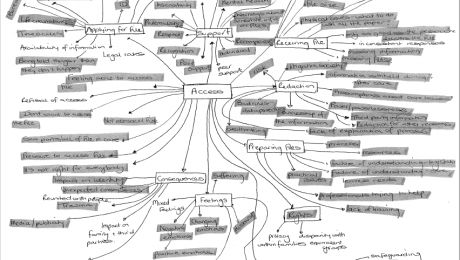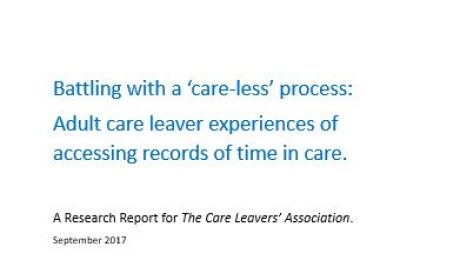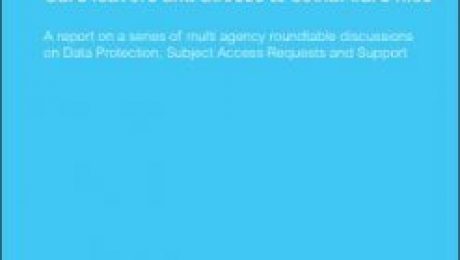MIRRA – Memory- Identity – Rights in Records – Access
n 2017 we teamed up with University College London who are carrying out a 2 year research project properly funded into the accessing of records with particular emphasis on care records and care leavers experiences.
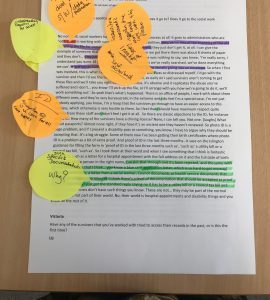
MIRRA is a research project that aims to support the rights of care leavers by exploring how child social care records have been created, kept and used in public and voluntary organisations in England from the mid-20th century to the present day. The acronym stands for Memory – Identity – Rights in Records – Access. It is a participatory action research project co-produced with care leavers in partnership with the Care Leavers Association. Ultimately it aims to make positive changes to social care record keeping and through those changes improve the care leavers’ experiences.
A history of the research can be seen on the MIRRA Blog here
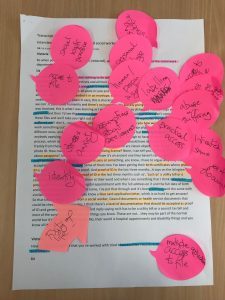
- Published in Research
MIRRA Research and lack of “love” in record keeping
We have been very fortunate as a group to have had the support of the MIRRA project, which appears in more detail in the Research Section of the site, where there is a fuller explanation of the 2 year research project being carried out by the University of Central London in close co-operation with several organisations such as the Care Leavers Association and ACRCG.
In this latest blog, Victoria Hoyle describes how she has discovered the issue that children in care feel unloved owing the bureaucratic process of record keeping, the form filling needed to obtain, for example, pocket money, and feeling that they are a statistic rather than a real human being.
To read the blog, click here
Freedom of Information Request Survey
Key findings of the Freedom of Information request to all local authorities in England
- 1 in 6 councils had no records of the number of Subject Access Requests [SARs] made in a 12 month period by adult care leavers.
- Where councils did have records, there was wide variation as to the number of SARs made in any one year. The average was a fifth of all SARs received, and three councils reported SARs from adult care leavers were just over 50% of the total number of applications.
- The pattern of significant variation across England resonates with findings from other enquiries by the Access to Care Records Campaign Group [ACRCG] that despite statutory guidance on the need to have skilled staff to deal with these SARs and supports tailored to the individual’s needs, this is not evident
- Published in Research
Manchester University Research Project
In partnership with the Care Leavers Association, and by using care leavers for research, we commissioned a paper into the experience of Care Leavers when trying to access their records from Local Authorities. It is entitled
“Battling with a “care-less” process” – November 2017, and can be downloaded by following this link
- Published in Research
Battling with a “care-less” process
The history of this research project stems from our failure to persuade the government via our lobbying member of the House of Lords, Baroness Lola Young of Hornssey way back in 2014 during the passage of the Children & Families Bill, when we tabled an amendment to the bill, the purpose of which was to put on a statutory footing regulations regarding the supplying of records to Care Leavers.
- Published in Research
It’s my journey, it’s my life, it’s my identity! Care Leavers and access to social care files
Members of the Access to Care Records Group were asked by the Department of Education to conduct some evidence based research into the issues for Information and Governance Departments of Local Authorities concerning the disclosure of Care Records to Care Leavers following the implementation of the Children’s Act Transitional Guidance published in 2014.
Between June and September 2015, we held some roundtables at various Local Authority invited venues, when we initially gave a talk, then played a film made about the experience of Care Leavers when accessing their care records, then held some workshops at which the views of delegates were sought.
- Published in Research

